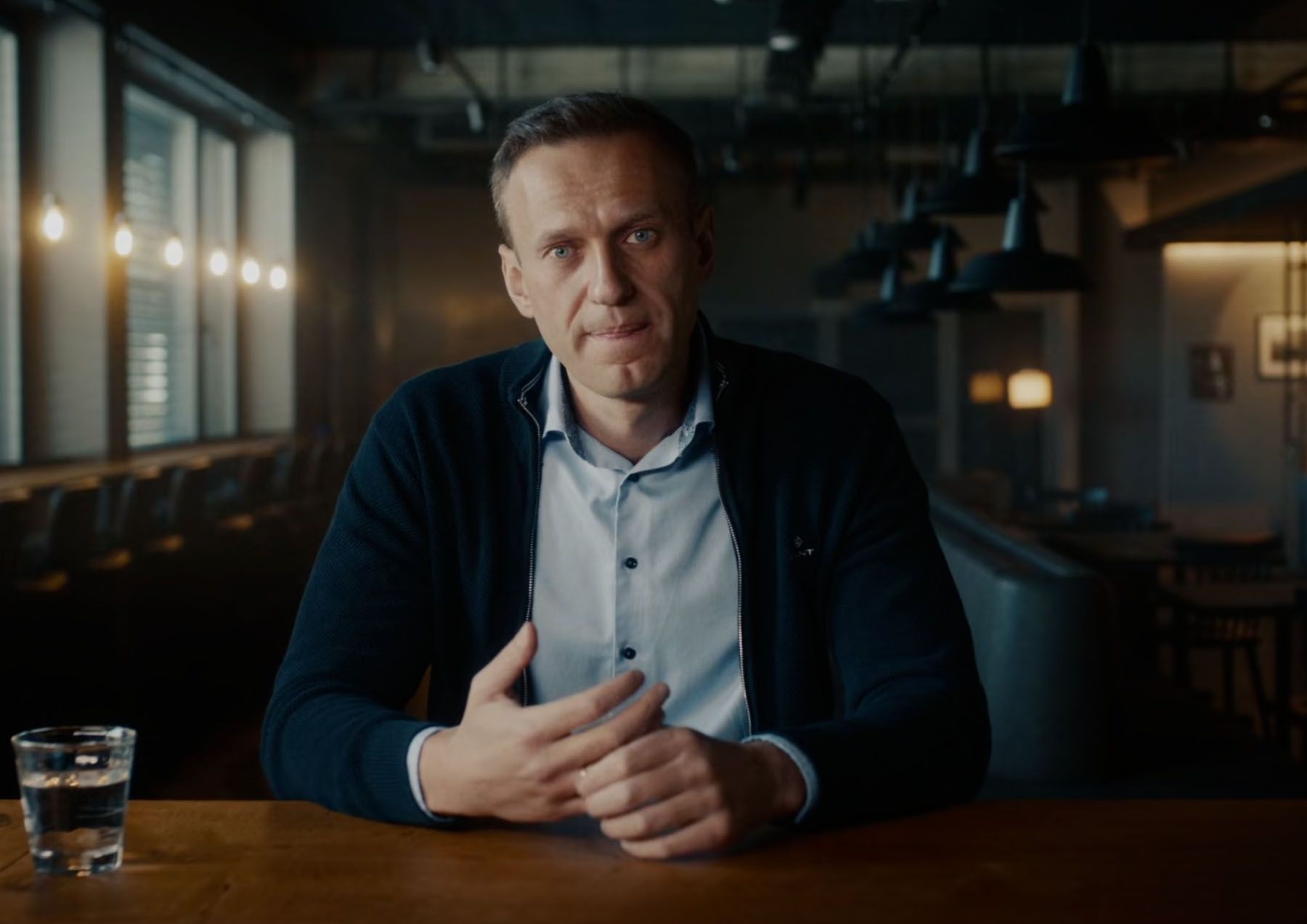Navalny (2022): A Movie Review
A documentary that is relevant and instructional on how to fight evil in the world today.

Navalny prompted me to stop what I was doing, and write about it with a sense of urgency. I love when that happens. It is a documentary with impact, leaving its viewer feeling clear on the kind of things that can’t be looked up on Google or consumed through social media.
To me, these are some of the best qualities of non-fiction films.
It received no cinema run after its premiere at Sundance in January, following which it was picked up for distribution by Warner Bros. Pictures. Instead, it has been shown on various TV channels, in various countries at various times, with mixed availability on the big streaming services.
So it will have flown under the radar for many. Which is a shame. It deserves more attention and public discourse than Don’t Look Up got last December, for example — and that was a movie I quite enjoyed. Except for Fire of Love, which belongs in a special category of its own, it is so mesmerising, it is the best documentary I have seen this year.
It is the most relevant documentary I have seen for a long time.
If you aren’t going to watch many documentaries this year, watch this one. Fire of Love is great, but it can be enjoyed at any time. This one should be watched now, as the Russo-Ukrainian War continues and the Russian invasion kills more each day, including civilian targets, child casualties, and reports of people with disabilities (including children) being used as human shields.
Alexei Navalny is a leader of the non-systemic opposition (read: “real” opposition) in Russia who built traction, support, and fame as a bold and uncompromising Putin critic. You may remember him as the man in the news who was poisoned by the Novichok nerve agent in August 2020, lucky to survive after an embattled emergency evacuation to Berlin for medical attention.
He was put in a medically-induced coma, and survived. And thanks to his evacuation to Germany, traces of the poison were actually found (the poison is engineered to leave no trace after a few hours, so that is no small feat).
Canadian Daniel Roher directs, with filming starting shortly after Navalny came out of his coma. It continued right through to the moment he flew back to Russia, where he was arrested on arrival, and remains in jail there today.
The film crew were next to him at border control as he was arrested, so the film covers an important timespan in its entirety, between recovering from the assassination attempt and being thrown in jail.
The interview technique is excellent. We get a very good sense of the man, his “first lady” or “right-hand person,” and wife, Yulia — who was instrumental in securing his survival while under Russian hospital care —, and the small team around him. Their personalities, characters, values, and spirit. The candid moments you don’t and can't get reading the news or on social media.
The small team we follow, with Navalny as team leader, consists of a crack squad of dogged, modern-minded Russians with no discernible fear. They are the skeleton staff of an opposition party that once had official offices based in Russia, and were able to hold rallies and conduct political operations there.
They continued their fight against Putin in DIY style from overseas after their party was branded “extremist” and outlawed, which made it impossible to use the conventional political means of reaching the Russian people, such as rallies.
The team have a ragged, scrappy quality as a group, with a good sense of humour leading the charge. This gives the film a bright energy. They bring to mind the spirit of the French Resistance and what it represented, though in a modernised form and different context.
The approach Navalny took was that with no money, a small group of trusted people, a lot of hard work, and an internet connection, they could fight effectively against one of the most powerful regimes on the planet, despite the legal barriers. He was right. And, tellingly… “they” (the FSB, Kremlin, Putin) realised that he was right.
Navalny makes a comment early in the documentary that captures the nature of Putin’s regime well:
Navalny: As I became more and more a famous guy, I was totally sure that my life became safer and safer, because I’m a kind of “famous guy,” and it will be problematic for them just to kill me.
Interviewer: And boy were you wrong.
Navalny: Yes, I was… very wrong.
That he and his team continued fighting after finding out their sense of safety was false is admirable.
I think this comment also shows a misunderstanding of the nature of evil regimes most of us have. A false sense of safety which can be exploited to cause sudden, unexpected harm on a societal level.
It is easy to see regimes like Putin’s as playing by the rules, when they never really are. They are faking playing by the rules, while their command and the culture around it is waiting for the opportunity to make bold and unexpected strikes. A political “rope a dope” of sorts.
Something about the heart of evil is illustrated here, beyond the obvious fact that “Putin likes to make bold moves.” When an evil individual takes power, they appear to play by established rules… until they are suddenly not. Usually something they have calculated to get away with in a faulty manner. Sometimes simply to get the result they want, damn the consequences. A childlike mentality that is insanely dangerous in positions of power, but does get there. In positions of extreme power, in the case of Russia, over almost 150 million humans.
Regimes like Putin's are playing by different rules, where conscience never enters the picture. Even Navalny, who made his career out of shining a light on Putin's “party of crooks and thieves,” miscalculated how bold he could be. Putin's party, United Russia, is the extremist organisation. They are simply protected by the fact they have formed a government and effectively suppressed and brainwashed their people.
The stunning centrepiece of the documentary is showing the process through which Navalny and his team were able to investigate and establish several government figures likely to be members of the assassination team, and reach them by phone.
After Navalny contacted two of that team without trying to hide his identity, asking mockingly what went wrong when they tried to kill him, he tries a third time in prank call style.
They reach a chemist who is at home suffering from Covid-19, a little foggy in the head, and all-to-eager to please his higher ups — something that tends to be common within authoritarian regimes.
Incredibly, Navalny was able to fool the chemist into a confession on tape, posing as a senior government official demanding a brief report about why the assassination attempt failed. He gives that report willingly to Navalny, the subject of the assassination attempt he describes, who played the part superbly while holding back laughter and masking his delight.
It is a staggering, broad daylight reveal of what lies beneath Russian state-sponsored lies, and illustrates what a few determined, brave, and smart people can do. It also shows the inherent incompetence of Putin's regime, however it might present itself to its subjects and the world at large.
The movie ends on a similarly inspiring note, addressed by Navalny in Russian (his interviews are otherwise in English), to the Russian people.
Above all, zooming out from political specifics, this is a movie that leaves a vivid impression of how it is possible to keep a light heart, keep laughing, keep love in your eyes while showing no weakness, and fight on against evil — even when facing extreme danger and persecution.
The threat might be real, but that doesn't mean your spirit needs to suffer. Keep laughing and keep fighting, is the thought it leaves me with.
James Lanternman writes movie reviews, essays, and moonlit thoughts. You can reach him at [email protected].
Previously… ‘If I Can Dream’
